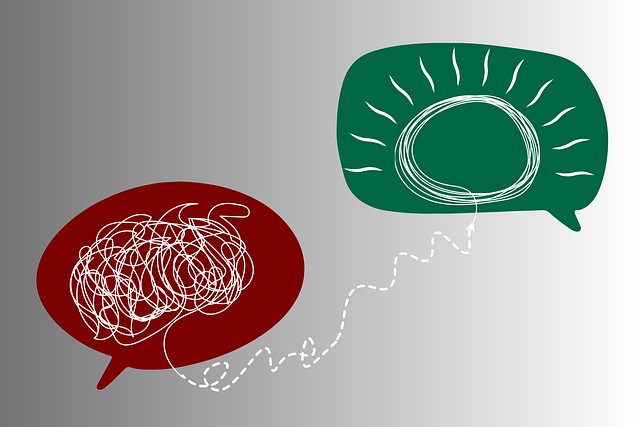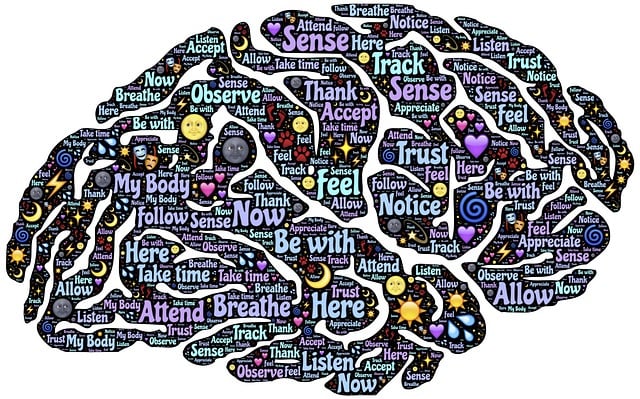Arvada Adolescent and Teen Therapy prioritizes risk assessment as a core practice for identifying and addressing potential risks to adolescents' mental health. Through interviews, observations, and record reviews, therapists create safe spaces encouraging resilience and confidence. This systematic approach involves evidence-based practices, tailored interventions, and informed decision-making, ultimately transforming clients' lives. Robust risk management strategies, including cultural competency training, crisis intervention guidance, and conflict resolution techniques, ensure a secure and effective therapeutic environment. Continuous evaluation and monitoring further enhance client safety by quickly identifying and addressing emerging issues.
Mental health professionals constantly navigate complex landscapes, prioritizing patient safety. This article delves into crucial aspects of risk assessment within the unique context of adolescent and teen therapy at Arvada. From understanding foundational principles of risk assessment in mental health practice to identifying risks specific to this demographic, we explore actionable strategies for effective risk management. We also highlight continuous evaluation and monitoring techniques for enhanced patient safety, offering valuable insights tailored to the demands of Arvada’s adolescent and teen therapy setting.
- Understanding Risk Assessment in Mental Health Practice
- Identifying Risks Specific to Adolescent and Teen Therapy at Arvada
- Implementing Effective Risk Management Strategies
- Continuous Evaluation and Monitoring for Enhanced Safety
Understanding Risk Assessment in Mental Health Practice

Risk assessment is a critical component of mental health practice, especially when working with adolescents and teens at Arvada Adolescent and Teen Therapy. It involves identifying, analyzing, and mitigating potential risks associated with a client’s mental health and well-being. This process helps professionals create safe, supportive environments that foster resilience building and confidence boosting. By assessing factors like past traumas, suicidal ideation, or substance abuse, therapists can tailor interventions to address specific needs, enhancing self-awareness exercises and overall therapeutic outcomes.
A comprehensive risk assessment strategy allows mental health practitioners to proactively manage cases, ensuring the best possible care for their clients. It involves gathering information through interviews, observations, and record reviews, followed by a systematic evaluation of identified risks. This approach enables therapists to implement evidence-based practices, offer appropriate resources, and make informed decisions, ultimately contributing to positive transformations in clients’ lives.
Identifying Risks Specific to Adolescent and Teen Therapy at Arvada

In Arvada, adolescent and teen therapy presents unique risks that require careful consideration. As young people often struggle with sensitive topics like identity formation, past traumas, and peer pressure, mental health professionals must be attuned to the specific emotional and psychological nuances of this demographic. Identifying risks in this context involves recognizing potential triggers related to self-esteem, social media influence, academic pressures, and family dynamics.
The challenge lies in creating a safe and supportive environment that encourages open communication while navigating the complexities of adolescence. Effective risk assessment for Arvada’s adolescent and teen therapy involves integrating practices like mental wellness journaling exercises to foster self-reflection and processing. Additionally, crisis intervention guidance is crucial to handle sudden emotional escalations and ensure client safety. Mental illness stigma reduction efforts also play a vital role in fostering trust and encouraging teens to seek help without fear of judgment.
Implementing Effective Risk Management Strategies

Implementing effective risk management strategies is paramount for mental health professionals, such as those at Arvada Adolescent and Teen Therapy, to ensure safe and ethical practice. It involves a multifaceted approach that goes beyond merely identifying risks; it includes proactive measures to mitigate potential hazards and promote positive outcomes. By integrating comprehensive risk assessment tools and continuous training, healthcare providers can better navigate complex situations.
For instance, regular Healthcare Provider Cultural Competency Training equips professionals with the skills to understand and address cultural nuances in therapy, thereby reducing cross-cultural conflicts. Crisis Intervention Guidance provides essential tools for handling acute situations, while Conflict Resolution Techniques foster healthy communication, minimizing escalations. These strategies not only protect both clients and therapists but also enhance the overall therapeutic environment, ensuring a more secure and effective treatment journey.
Continuous Evaluation and Monitoring for Enhanced Safety

Mental health professionals, especially those providing services to adolescents and teens, like those at Arvada Adolescent and Teen Therapy, must adopt continuous evaluation and monitoring as a cornerstone of their practice for enhanced safety. This proactive approach involves regular assessment of client progress, emotional states, and potential risk factors, ensuring that any emerging issues are promptly identified and addressed. By integrating this strategy into their workflow, professionals can foster an environment conducive to positive thinking and anxiety relief while mitigating risks.
Continuous evaluation enables practitioners to stay ahead of potential crises, tailoring interventions accordingly. Public awareness campaigns development can further bolster this process by educating both the public and mental health providers on recognizing warning signs of deterioration in adolescent mental health. Such initiatives contribute to a more informed and supportive ecosystem, ultimately enhancing the safety and well-being of clients.
Mental health professionals, especially those working with adolescents and teens in Arvada, must prioritize risk assessment as a cornerstone of their practice. By identifying specific risks unique to this demographic, implementing robust risk management strategies, and continuously evaluating these measures, therapists can create a safer environment for their clients. This comprehensive approach ensures the highest standards of care at Arvada Adolescent and Teen Therapy, fostering trust and empowering young individuals on their journey towards mental well-being.














